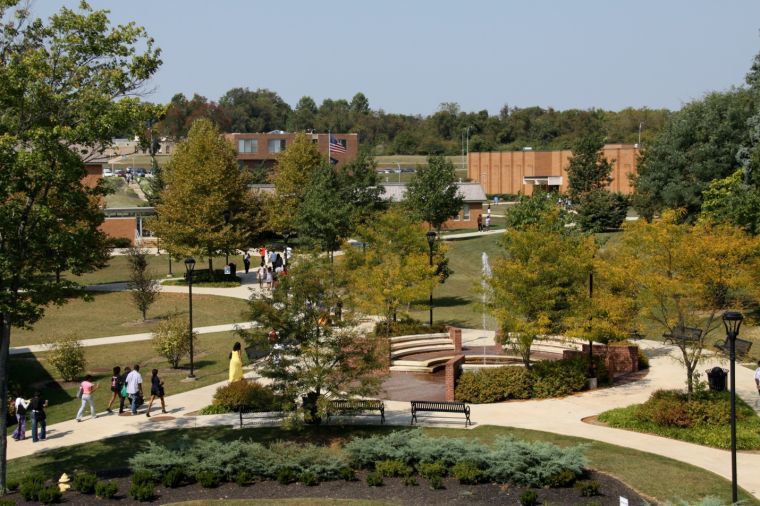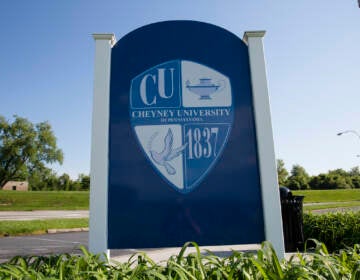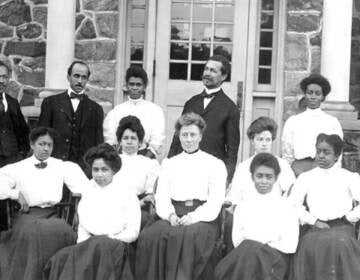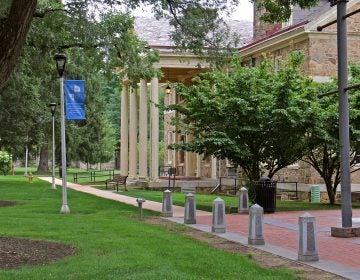Cheyney University’s accreditation extended for a year
Cheyney University’s accreditation has been extended for another year under probationary status, the Middle States Commission on Higher Education announced Tuesday.

An aerial view of the Cheyney University campus. (Courtesy of Cheyney University)
This story originally appeared on The Philadelphia Tribune.
—
Cheyney University’s accreditation has been extended for another year under probationary status, the Middle States Commission on Higher Education announced Tuesday.
Representatives of the accrediting agency met with Cheyney President Aaron Walton last week and notified the historically Black institution of its updated accreditation status, which took into account its strengthened financial and institutional resources.
“The action by Middle States reflects the confidence it has in the direction of Cheyney’s transformation,” Walton said in a statement. “The commission feels confident we can address the remaining outstanding issues. We are working in a deliberate manner to transform the university to ensure it continues to serve the commonwealth in the future.”
Going forward, Cheyney will have to submit a report to Middle States by August 2019 addressing, among other things, its plan to ensure the long-term financial stability of the university.
Middle States Commission Chair Gary L. Wirt said the commission granted Cheyney a second extension for “good cause” after Cheyney representatives provided a “thorough report” on ongoing initiatives at the university.
“As the action reflects, the commission found the institution has demonstrated significant progress towards the resolution of its non-compliance issues and is making a good faith effort to remedy existing deficiencies,” Wirt said in a statement.
Commission representatives will visit the university again in early fall 2019 and Cheyney officials will again appear before a commission meeting next Nov. 21, Wirt said.
Initially placed on probation in November 2015, some of the issues Cheyney had to address included financial aid records and making sure money from the U.S. Department of Education is awarded correctly to students.
Middle States credited Walton, who became president of the 181-year-old institution last year, with addressing cost structure and improving operational practices.
“The commission’s decision testifies to the effectiveness of the work that President Walton and the Cheyney team have done in this transformation effort,” Cynthia D. Shapira, chairwoman of the Board of Governors of Pennsylvania’s State System of Higher Education, said in a statement.
Walton said Cheyney is raising the bar in terms of admission standards and is establishing partnerships with other universities. This semester enrollment dipped by 38 percent to 469 students, down from 755 in the spring.
The school dropped its NCAA Division II status and withdrew from the Pennsylvania State Athletic Conference. Additionally, the state Board of Governors said it would forgive $30 million in loans if the school could maintain a balanced budget and meet certain benchmarks.
Despite all of these things, the beloved HBCU still faces some challenges.
“It is important in its own right that we succeed with this transformation,” State System Chancellor Daniel Greenstein said in a statement. “Through our success we will also create solutions that will be essential in addressing similar challenges that are present elsewhere in the system, as they are in U.S. higher education. We have an opportunity — we have an obligation — to seize this moment and apply ourselves to the redesign of public higher education for the benefit of all of our students and the communities we serve.”
WHYY is your source for fact-based, in-depth journalism and information. As a nonprofit organization, we rely on financial support from readers like you. Please give today.




